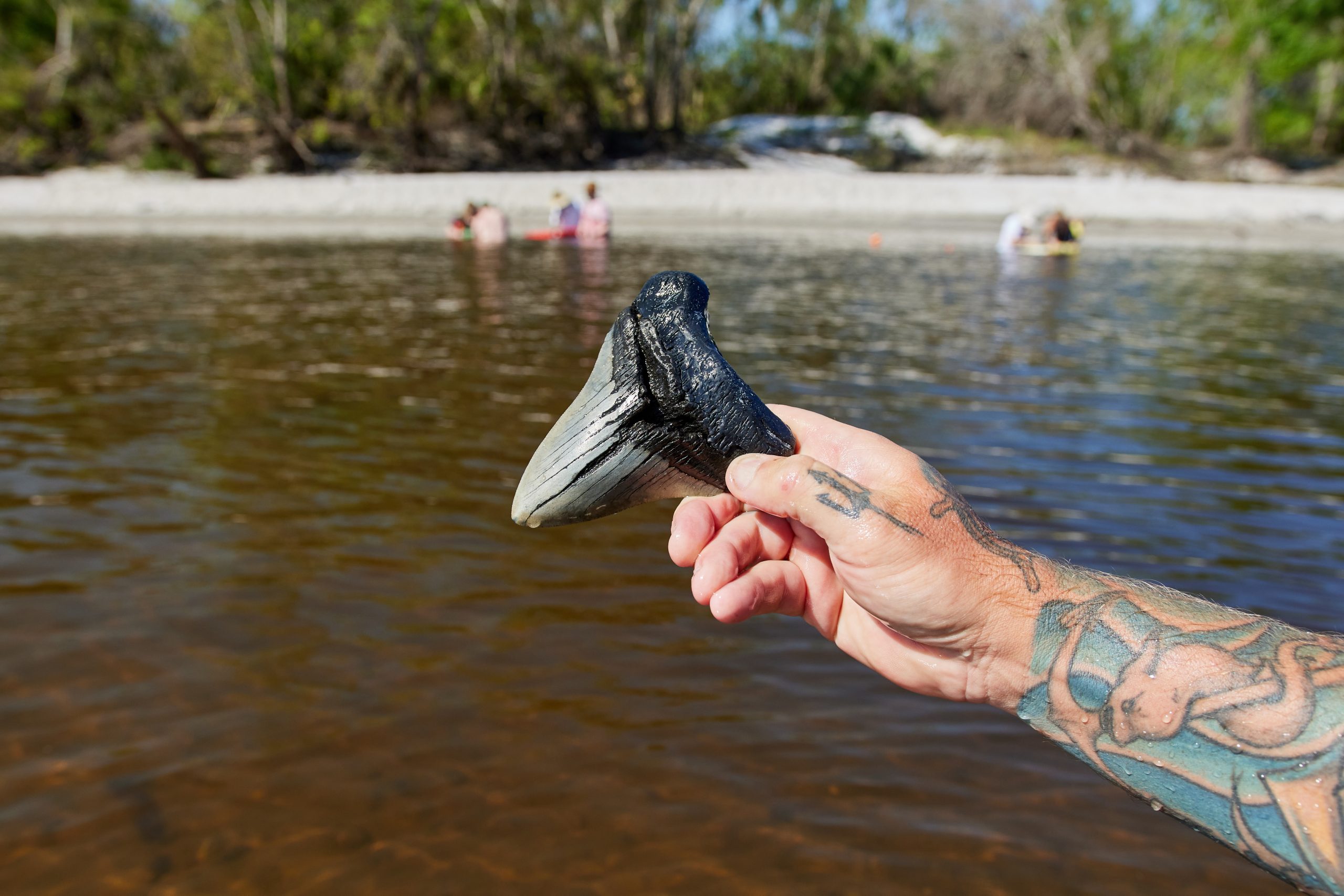Here in DeSoto County, we’re proud to have a rich Florida fossil hunting destination right in our backyard: the Peace River.
The banks of the river hold a plethora of fossils of all sorts. This geographical area has been both dry land and submerged under the ocean throughout the earth’s history, and these changes over time have led to a vast variety of fossilized treasures for enthusiasts to find. Fossil hunters commonly find fossilized teeth of a variety of shark species, rays, and fish. If you’re lucky, you might even find fossils of mammals from the Ice Age or megalodon teeth!
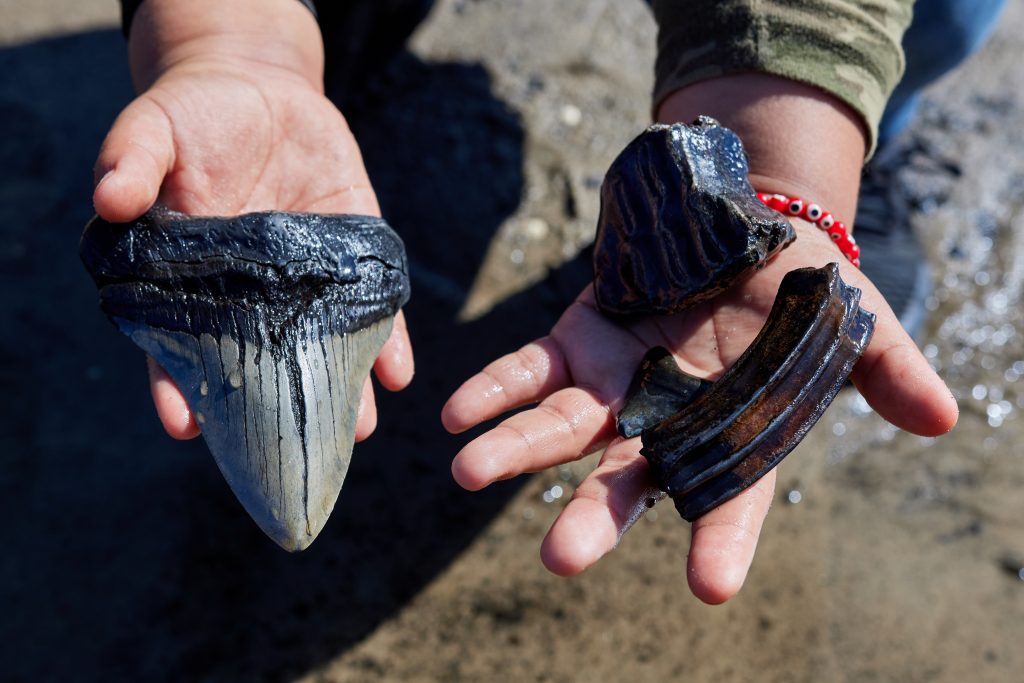
Respectful and responsible fossil hunting is a welcome hobby here in DeSoto County. The quest to find a new fossil isn’t just about the excitement of uncovering a piece of ancient life, though. It’s also about respecting the land, its current wildlife inhabitants, and following local regulations that protect these irreplaceable resources.
Florida Fossil Hunting Permits
You’ll need a permit to collect vertebrate fossils on land owned or leased by the State of Florida, but anyone can apply. Just download and complete a form, include a photocopy of your identification, and include a $5 check or money order when you mail the application to the Program of Vertebrate Paleontology at the Florida Museum of Natural History. Access the application and full instructions on the Florida Museum of Natural History’s website. While searching for fossils, be sure to avoid trespassing on private land.
Respecting the Land
Of course, digging for pieces of the past doesn’t translate to neglecting our present-day environment. The fossil-rich areas of our county are delicate, but by treading carefully we can preserve them for many years to come. These three easy-to-remember guidelines will allow you to confidently hunt without worrying about damage to your surroundings.
1. Stick to Established Trails
- Staying on marked trails helps to prevent soil erosion and protect foliage. These trails are often designed specifically to minimize human impact on the environment.
- Some fossil sites are located within areas of geological significance. By using established trails, fossil hunters can avoid disturbing the unique features and integrity of these landscapes.
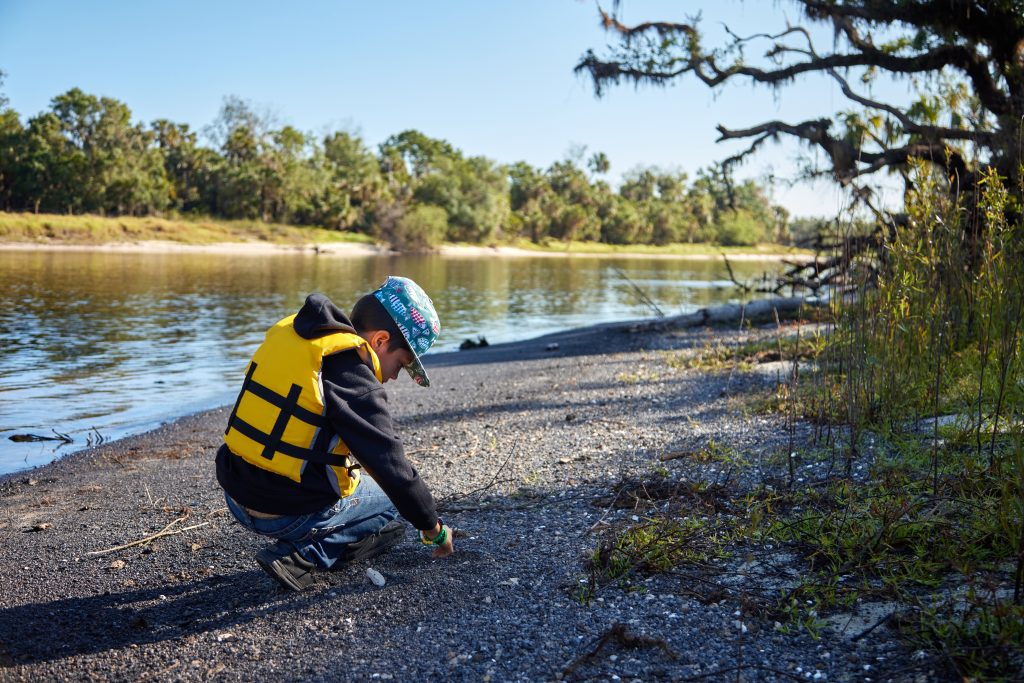
2. Avoid Disrupting Natural Habitats
- Disturbing stones, logs, and other natural elements can destroy potential homes and hiding spots for small critters. When you search for fossils, carefully replace any moved objects to their original positions.
- Discovering a fossil is exciting! But, please try to jump for joy metaphorically, rather than physically, to avoid damaging surrounding areas. Hunters should avoid digging large pits or creating new paths – leave trail design to the experts.
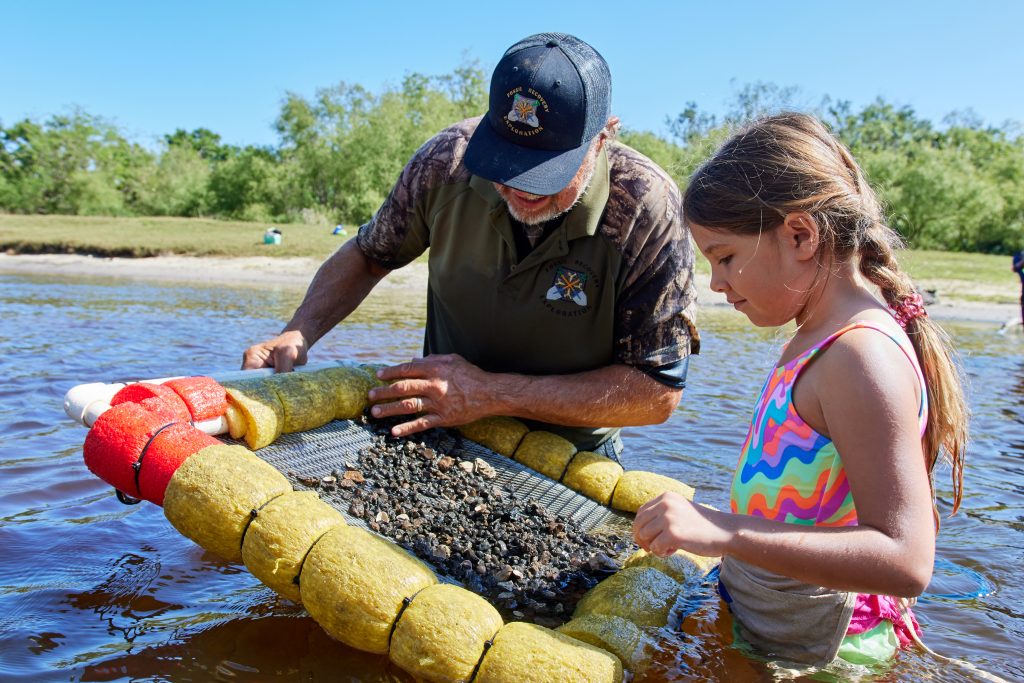
3. Leave No Trace Principles
- One of the core principles of outdoor ethics is to leave no trace of your visit. This includes packing out all trash, even small items like wrappers or bottle caps, to prevent pollution and harm to wildlife.
- Respect geological, paleontological, and archaeological resources by not taking anything home that should remain where it is. Some fossils may play a vital role in ongoing scientific research, and it’s generally not allowed to collect archaeological artifacts.
- Help us out by sharing these guidelines with friends and fellow fossil hunters!
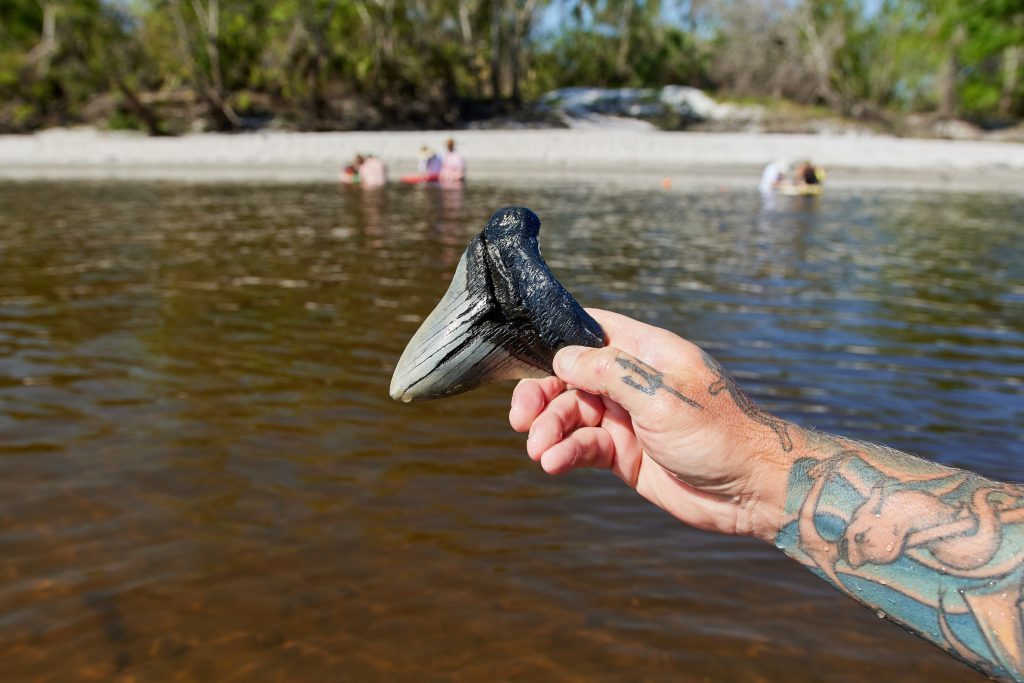
Plan Your Visit!
We can’t wait for you to come visit. Don’t forget to check out some of the other fun activities in DeSoto County while you’re here. We have a variety of campgrounds, RV parks, and historic hotels that are great for groups of all sizes. We’ll see you soon!
